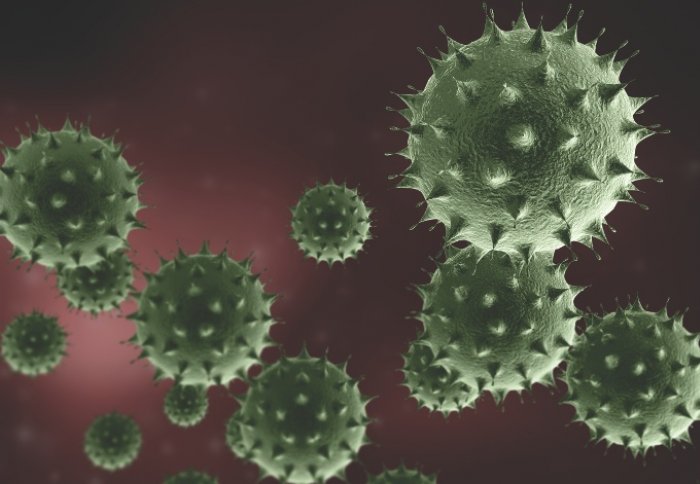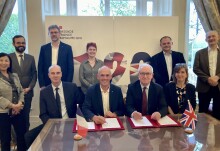

Imperial has commissioned an independent investigation into allegations published by a newspaper regarding the use of animals in medical research
The vast majority of biomedical research at Imperial College London is carried out using non-animal methods and materials. The small part of research that does involve animals is only carried out where there is no alternative. It makes a significant contribution to our understanding and treatment of diseases such as cancer, HIV and Alzheimer’s. Some of the treatments as a result of this work also make a positive contribution to animal health.
After receiving the allegations via a newspaper, on Friday 12 April John Neilson, the College Secretary and Imperial’s establishment licence-holder, asked Professor Steve Brown, Director of the Medical Research Council’s Mammalian Genetics Unit at Harwell, to chair an independent investigation panel and make any recommendations the panel feels are appropriate. The scope and timeframe for the panel’s work will be set by Professor Brown.
In addition to commissioning the independent investigation, Imperial is contacting all staff holding project or personal Home Office licences for animal research informing them that allegations of misconduct have been made, and to remind them of the College’s policy and their personal responsibilities for the conduct of all research.
The College has passed on the allegations to the Home Office and will work closely with the Home Office on any further actions that may be necessary.
John Neilson, College Secretary and Registrar, said: “We are determined to find out if there is any truth to these allegations about animal research at Imperial. That’s why we’ve launched this independent investigation, kept the Home Office fully informed, and reminded staff of their obligations.”
Professor Maggie Dallman, Dean of the Faculty of Natural Sciences, said: “Imperial College only allows animal models in research programmes where their use is shown to be essential. We are fully committed to the replacement, reduction and refinement of the use of animals in research.”
Further information on Imperial’s policies on the use of animals in research.
Imperial College London statement
“From antibiotics and insulin to blood transfusions and treatments for cancer or HIV, many medical achievements in the past century have depended directly or indirectly on research using animals. Only a small percentage of medical and biological research involves the use of animals. That part remains vital, however, to further the development of treatments or cures for medical conditions that blight or destroy the lives of humans - and animals.”
“Imperial College’s policy on the use of animals in research is that animals may only be used in research programmes where their use is shown to be essential.
“Scientists and staff at Imperial work hard to ensure that animals are kept and cared for using the highest standards of husbandry, thereby causing least pain or distress.
“The UK law which governs the use of animals is widely viewed as the most rigorous piece of legislation of its type in the world and the Home Office Inspectors who administer it maintain a continuous inspections programme of facilities where work is carried out.
“Following allegations of misconduct made to Imperial this week, the College has immediately taken these steps:
- It has launched an independent investigation into the allegations. Professor Steve Brown, Director of the MRC Mammalian Genetics Unit, Harwell, has agreed to convene and chair an independent panel to investigate the allegations and make any recommendations it feels appropriate as a result. The scope and timeframe for the panel’s work will be set by Professor Brown.
- It is contacting all staff who hold project or personal Home Office licences for animal research to inform them that the College has received allegations of misconduct and to remind them of the College’s policy and their personal responsibilities for the conduct of all animal research in their laboratories.
- It has contacted the Home Office and passed on the allegations, and will work closely with the Home Office in relation to any follow-up actions which are necessary.
“Under its policy, Imperial scientists actively seek alternative methods and techniques that will enable them to further their research without animals - such as research on isolated molecules, cells and tissues, computer simulations, and human clinical trials. Where alternatives cannot be found, only the smallest number of purpose-bred animals are used.
“In October 2012 the College, along with 40 other organisations, signed a Declaration on Openness in Animal Research which commits it to developing a concordat setting out how it will be more open about the ways in which animals are used in scientific, medical and veterinary research in the UK.”
“The College adheres to the Three Rs – the guiding principles for the use of animals in research in many countries:
- Replacement - the preferred use of non-animal methods over animal methods whenever it is possible to achieve the same scientific aim.
- Reduction - methods that enable researchers to obtain comparable levels of information from fewer animals, or to obtain more information from the same number of animals.
- Refinement - methods that alleviate or minimize potential pain, suffering or distress, and enhance animal welfare for the animals used.
Article text (excluding photos or graphics) available under an Attribution-NonCommercial-ShareAlike Creative Commons license.
Photos and graphics subject to third party copyright used with permission or © Imperial College London.
Reporter
John-Paul Jones
Communications and Public Affairs

Contact details
Email: press.office@imperial.ac.uk
Show all stories by this author



